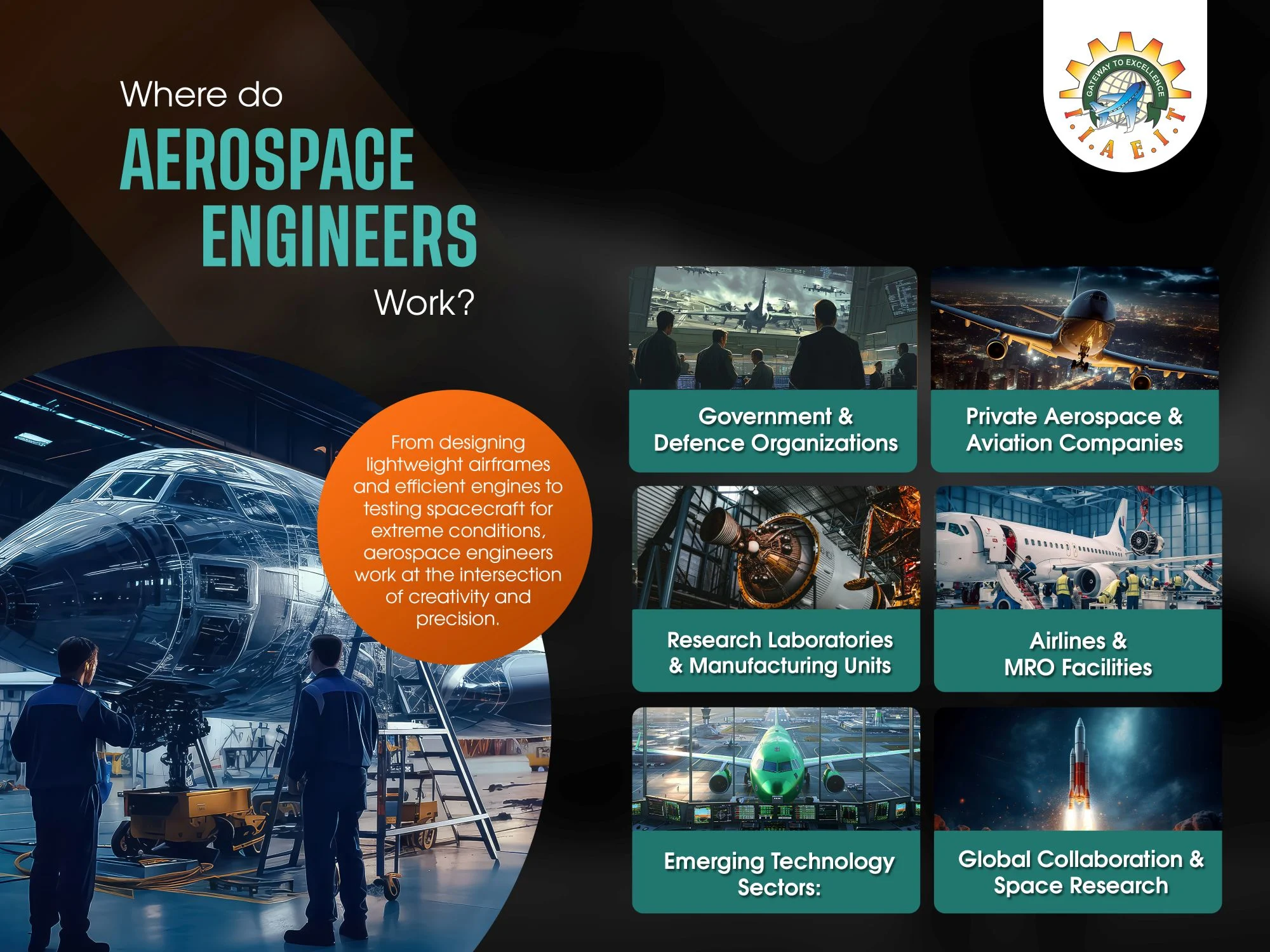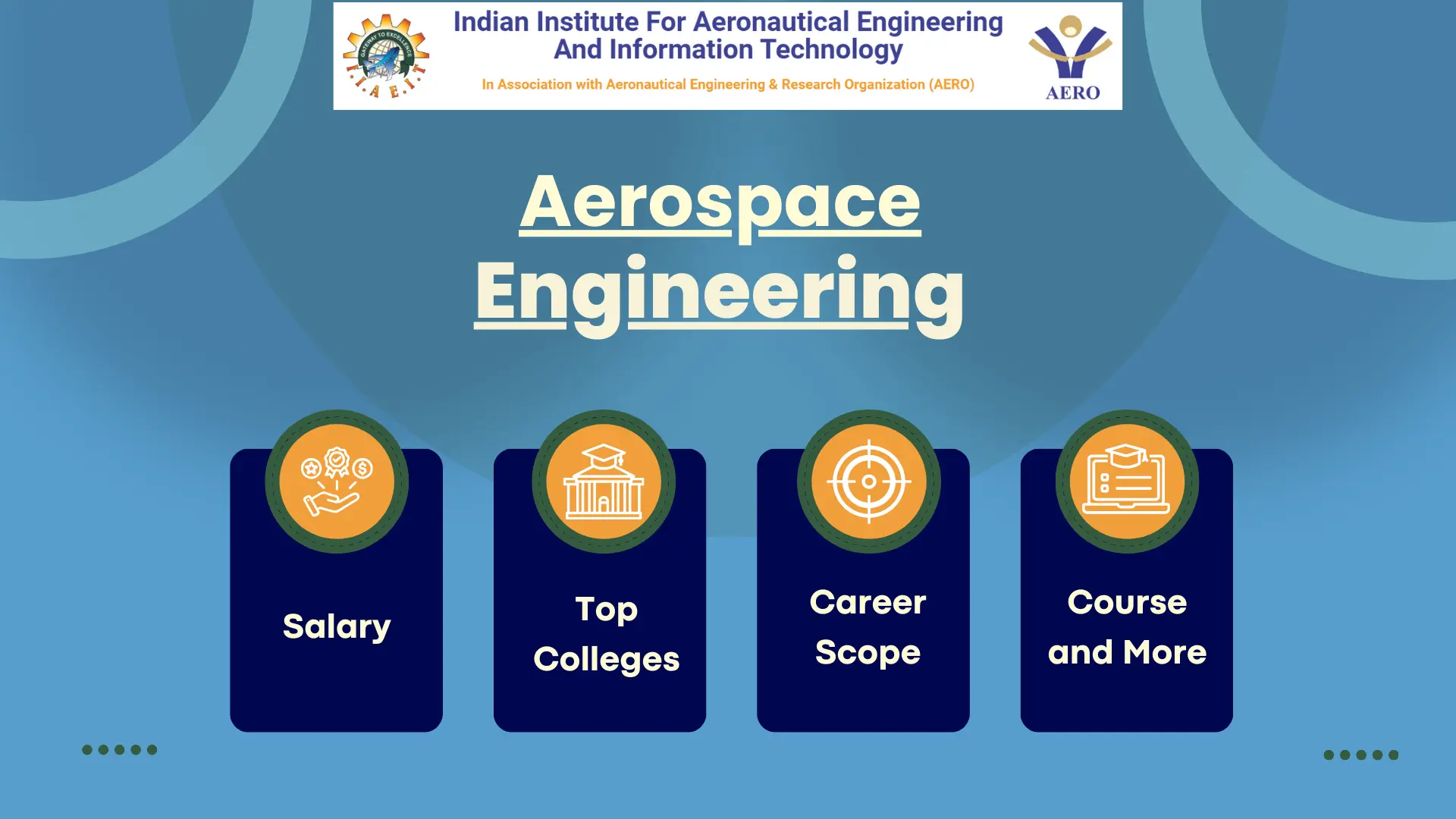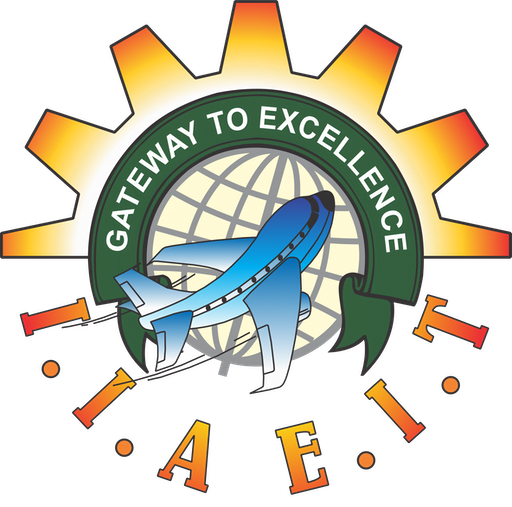Aerospace Engineering in India: A Beginner’s Guide 2026
Introduction
Once, India looked up at the sky and the stars with wonder. Today, it’s building the machines that reach them. From space missions to homegrown fighter jets, satellite startups, and drone innovations, the country is scripting a new chapter in aviation and space technology. This leap of development has propelled Aerospace Engineering to new heights.
Aerospace Engineering is for those who see science not as formulas on paper but as the force that lifts a plane, balances a wing, and powers a spacecraft across the horizon. If questions like “What is Aerospace Engineering?”, “What does an Aerospace Engineer do?, or “How to get into Aerospace Engineering?” came into your mind, then this field might just be where your curiosity becomes your career.
In this guide, we’ll explore these questions, along with the courses available, the career opportunities ahead, and why IIAEIT stands among the best aerospace engineering colleges in India, preparing the next generation of aerospace innovators.
What is Aerospace Engineering?
Aerospace Engineering is the study of how machines fly within our atmosphere and beyond it. It brings together physics, mathematics, and advanced materials to design, build, and test aircraft, rockets, satellites, and drones. This field is broadly divided into two major branches:
- Aeronautical Engineering: Design, development, and performance of aircraft that operate within the Earth’s atmosphere, such as commercial planes, defence jets, and unmanned aerial vehicles (UAVs).
- Astronautical Engineering: Deals with the creation and operation of spacecraft and satellites that travel or function beyond the Earth’s atmosphere, enabling space missions, communication networks, and planetary exploration.
What does an Aerospace Engineer do?
Aerospace engineers work at the intersection of creativity and precision. Their work spans every stage of an aircraft or spacecraft’s lifecycle – from concept and design to testing and maintenance.
- Design & Simulation: Developing 3D models, performing flight dynamics tests, and optimizing aerodynamics using advanced software tools.
- Propulsion & Materials: Redefining speed and efficiency through better engines, lighter materials, and advanced fuel systems that make flight more powerful and sustainable.
- Research & Development: Building the future of aerospace with innovations like reusable rockets, electric aircraft, and autonomous drones that are reshaping how the world travels.
- Testing & Quality Assurance: Pushing machines to their limits through stress, vibration, and temperature tests to ensure absolute reliability and safety.
- Maintenance & Upgrades: Extending performance and lifespan: from refining navigation systems to upgrading propulsion units for next-generation missions.
Where do Aerospace Engineers work?
From designing lightweight airframes and efficient engines to testing spacecraft for extreme conditions, aerospace engineers work at the intersection of creativity and precision.
- Government & Defence Organizations: Roles in ISRO, DRDO, HAL, and NAL involve spacecraft design, defence aviation, and national research projects.
- Private Aerospace & Aviation Companies: Employment with Airbus India, Boeing, Skyroot, Agnikul Cosmos, and other private players working on advanced aircraft, launch vehicles, and UAV systems.
- Research Laboratories & Manufacturing Units: Designing prototypes, testing materials, and developing new systems for propulsion, avionics, and structural integrity.
- Airlines & MRO (Maintenance, Repair, and Overhaul) Facilities: Ensuring the safety, maintenance, and operational efficiency of commercial and cargo aircraft fleets.
- Emerging Technology Sectors: Engaging in cutting-edge projects involving AI-driven flight control, autonomous drones, green propulsion, and sustainable aviation technologies.
- Global Collaboration & Space Research: Partnering with international agencies and startups on missions that push beyond Earth; in satellite communication, planetary exploration, and defence innovation.

Aerospace Engineering Course Details
The academic journey is structured to help students grasp the principles of flight, propulsion, materials, and control systems, while developing the technical mindset needed to design, analyze, and innovate.
Programs and Types of Courses
Program Type | Duration | Focus Areas | Highlights |
Undergraduate (B.Tech/B.E.) | 4 Years | Fundamentals of aerodynamics, propulsion, flight mechanics, and avionics | Core technical foundation, lab work, internships, and design projects |
Integrated (B.Tech + M.Tech) | 5 Years | Combines UG and PG curricula in aerospace & space technology | Research-driven learning, advanced simulation, and project integration |
Postgraduate (M.Tech/M.E.) | 2 Years | Computational Fluid Dynamics (CFD), advanced propulsion, materials science | Specialization in R&D, defence, and aerospace systems design |
Diploma/Certificate Courses | 1–3 Years | Basics of aircraft systems and maintenance | Entry-level technical training and career pathway to degree programs |
Eligibility Criteria & Admission Process
Aerospace Engineering requires a solid foundation in Physics, Chemistry, and Mathematics, along with a drive to understand how machines defy gravity.
Level | Eligibility Criteria | Admission Process | Exams Accepted |
Undergraduate (B.Tech/B.E.) | 10+2 with Physics, Chemistry, and Mathematics (PCM); minimum 45% for General, 40% for Reserved categories | Merit-based or entrance exam followed by counseling | SPACE-CET, JEE Main/Advanced, University-level tests |
Postgraduate (M.Tech/M.E.) | B.E./B.Tech in Aerospace, Mechanical, or related fields; minimum 50% (45% for Reserved categories) | Entrance exam + counselling/interview | GATE, AEROPGCET, Institute-specific tests |
Entrance Exams for UG and PG Courses
The journey to becoming an aerospace engineer often begins with an entrance exam, the first checkpoint that tests your academic ability to think critically and apply logic.
For Undergraduate Programs:
- JEE Main/Advanced: Conducted by NTA and IITs for engineering aspirants who wish to specialize in aeronautical or aerospace fields.
- University-Specific Tests: Some universities conduct their own exams or interviews for direct admissions into aerospace programs such as SPACE CET.
For Postgraduate Programs:
- GATE (Graduate Aptitude Test in Engineering): The most recognized exam for M.Tech admissions in aerospace and allied fields.
Aerospace Engineering Career Opportunities
Aerospace Engineering career scope in this field is vast, dynamic, and constantly evolving. From developing lighter aircraft and efficient propulsion systems to designing reusable rockets and autonomous drones, aerospace engineers stand at the edge of technology and imagination.
With India’s growing presence in global aviation and space research, opportunities now stretch far beyond traditional organizations, reaching private startups, defence projects, and even international collaborations.
Career Path: Job Role, Skills, & Responsibilities
Job Role | Key Responsibilities | Core Skills Required |
Analyzing airflow, designing efficient wings, and improving aircraft performance | Fluid mechanics, CFD, MATLAB/ANSYS | |
Propulsion Engineer | Developing and testing jet engines, turbines, and rocket propulsion systems | Thermodynamics, materials science, and engine design |
Aerospace Engineer | Overseeing and integrating the design, development, and testing processes across specialized teams (e.g., propulsion, structures, avionics | Systems thinking, project management, technical leadership, knowledge of aerospace principles. |
Aerospace Technician | Assembles, inspects, and maintains aircraft/spacecraft components; performs diagnostics and repairs under supervision. | Hands-on mechanical skills, blueprint reading, diagnostic testing, compliance with safety protocols |
Structures Engineer | Ensuring airframes withstand stress, load, and vibration | Finite Element Analysis (FEA), materials testing |
Systems Engineer | Coordinating design between propulsion, avionics, and structures | Systems integration, project management |
Salary of an Aerospace Engineer
The Aerospace Engineering salaries vary depending on education level, specialization, domains, and industry sector across aerospace engineering.
Experience Level | Average Salary (India) | Typical Roles |
Entry-Level (0–2 years) | ₹4–6 LPA | Graduate Engineer, Design Trainee, Testing Assistant |
Mid-Level (3–6 years) | ₹7–12 LPA | Design Engineer, Systems Engineer, Flight Test Specialist |
Senior-Level (7+ years) | ₹15–25 LPA+ | Project Manager, R&D Lead, Aerospace Consultant |
Why IIAEIT stands out among the best Aerospace Engineering Colleges in India?
What sets IIAEIT apart is its ability to bridge academic learning with real-world application, creating engineers who learn through projects that simulate the challenges faced by the global aerospace industry; building, testing, and analyzing systems the way professionals do.
At IIAEIT, Aerospace Engineering isn’t confined to classrooms or textbooks. Here’s what makes IIAEIT stand among the best aerospace engineering colleges in India:
- Advanced Aerospace Laboratories: The campus houses specialized facilities like wind tunnels, flight simulators, jet engine test benches, and avionics labs, where students translate theory into practice.
- Project-Based Learning: Every semester integrates hands-on projects, from aircraft component design to drone modeling and propulsion system simulation, preparing students for industry-grade problem-solving.
- SPACE-CET Scholarships: Through the SPACE-CET national entrance exam, IIAEIT identifies talented students across India and provides merit-based scholarships, ensuring that access to world-class aerospace education is both inclusive and rewarding.
- Strong Industry Connect: Collaborations with organizations in aviation, defence, and research sectors, including DRDO, HAL, Tata Advanced Systems, and private aerospace startups, offer students internship, mentorship, and placement opportunities.
- Pune Advantage: Located in one of India’s growing aerospace and defence technology hubs, IIAEIT gives students access to research centres, manufacturing clusters, and real industrial exposure.
Conclusion
Aerospace Engineering is the science of ambition. It represents humanity’s constant desire to go faster, fly higher, and explore farther. From designing next-generation aircraft to developing reusable rockets, every advancement begins with engineers who combine imagination with precision.
With vast opportunities spanning across aviation, defence, research, and space exploration, aerospace engineering is for students who are fascinated by technology and driven by curiosity.
Institutes like IIAEIT stand at the forefront of this transformation. With state-of-the-art labs, project-based learning, and strong industry linkages, it provides the right environment for future aerospace engineers to learn, build, and lead.
FAQs
- Is Aerospace Engineering a good career in India?
Yes. With the rapid growth of India’s aviation, defence, and space sectors, aerospace engineers enjoy diverse career options in research, manufacturing, and private startups working on next-generation flight and space technologies.
- What skills are required to become an Aerospace Engineer?
Aerospace engineers need strong analytical skills, problem-solving ability, and proficiency in mathematics, physics, and computer-aided design tools like MATLAB, CATIA, or ANSYS. Creativity and teamwork are equally essential for innovation.
- What is the difference between Aeronautical and Aerospace Engineering?
Aeronautical Engineering deals with flight within Earth’s atmosphere, aeroplanes and helicopters. Aerospace Engineering includes that and extends to spacecraft, satellites, and rockets operating beyond Earth’s atmosphere.
- What qualifications are needed to become an Aerospace Engineer?
You need to complete 10+2 with Physics, Chemistry, and Mathematics (PCM) and pursue a B.Tech or B.E. in Aerospace Engineering. For M.Tech, a B.Tech or B.E. with 50% aggregate in the relevant field, along with acceptable scores in SPACEPGCET or GATE.
- Which entrance exam is required for Aerospace Engineering?
Exams like SPACE-CET, JEE Main/Advanced, and GATE (for postgraduate studies) are common pathways. SPACE-CET also offers scholarships and is accepted by leading institutes like IIAEIT.


